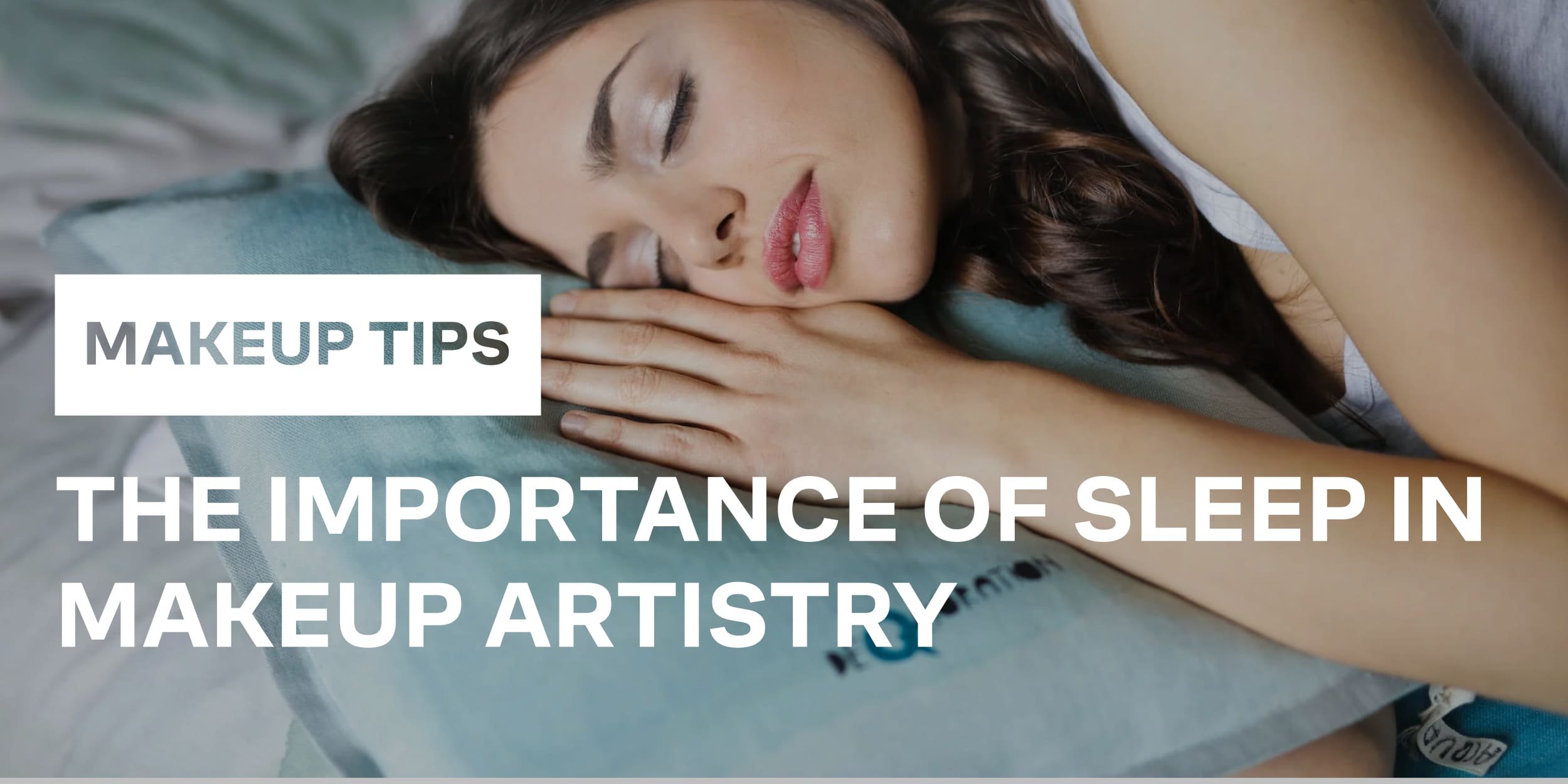The importance of sleep in makeup artistry
As a makeup artist you are definitely familiar with the term “beauty sleep”. “Make sure to get your beauty sleep” is a go-to phrase of all MUAs to ensure their clients get plenty of rest before an important day. But do you get enough sleep yourself and why is it so important for both you and your clients?
Having enough hours
of sleep will help your health and beauty enormously. Your face is part of your portfolio so you should take great care of it by having a proper night sleep. And here is why.
Skin ages faster if we sleep less than 6 hours per night because new collagen is produced while we sleep. Collagen is a type of protein and is a major component of our skin. It gives our skin structure, strengthens it and keeps it hydrated. The less collagen our skin produces the more wrinkles we have.
Skin recovers slower from different environmental stressors such as UV radiation if we don’t get enough sleep. It takes longer for wounds or sunburns to heal.
Sleep affects the way our skin resists moisture loss. Our body rebalances its hydration level. The body removes excess water while skin recovers its moisture. Lack of sleep leads to puffy bags under your eyes as well as skin dryness and more visible wrinkles. So drinking enough water during the day is only one part of the process. Having a quality sleep at night is the other.
Lack of sleep worsens the existing skin conditions. This is extremely important for those who have sensitive skin or allergic reactions like dermatitis.
Skin gets more blood flow while we are asleep which leads to fresh complexion and natural glow.
Skin gets the most of the beauty products at night while it doesn’t have to deal with environmental stress.
Good sleep is not only about beauty. It is about taking care of your body, mind and skin to maintain them healthy for many years ahead.
As a professional makeup artist you are very likely to know all these facts but you also know that your busy schedule won’t let you have a good rest every night. Do your best to get an average six to eight hours of sleep per night. If your week is busy, plan some extra sleep during the weekend to get your skin a chance to repair itself. But it’s not only about how many hours we sleep. It is also about the quality of our sleep.
We get better sleep if we do some simple things like avoid consuming caffeine in late afternoon or evening. The same goes for alcohol. A glass of wine might make it easier to fall asleep in the evening but it worsens the quality of our sleep. Try to eat a few hours before sleep because a large meal before bedtime leads to poor sleep and hormone disruption.
Out body likes routine so try to sleep and wake up at consistent times. It is also important to go to bed before midnight.
Make sure you have a comfortable bed and pillows and your bedroom temperature is not too cold or hot - if you use AC, set it at 68 degrees Fahrenheit (or 20 degrees Celsius) - keeping your head in the cool (literally) will guarantee that you’ll wake up feeling fresh.
Create your bedtime routine. Put away phones and gadgets. Listen to music, ASMR or take a hot bath. Give your brain some time to relax and prepare for sleep. Exercising during the day but not before bed is one the best practices for maintaining your health and quality sleep. If you wake up a few times during the night or feel exhausted after 8 hours of sleep you should definitely change your sleeping routine.



